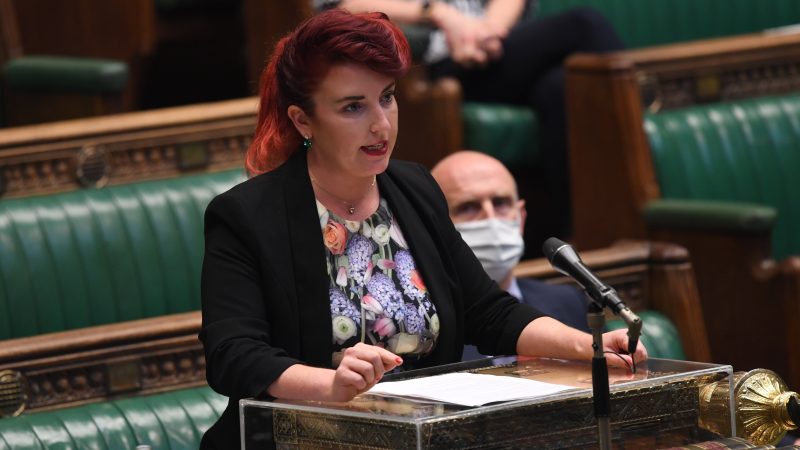
Labour’s Louise Haigh has argued that it is “impossible to escape the conclusion” that government ministers would prefer to “provoke the dispute” with the railway union RMT and “play political games rather than resolve it”.
Addressing a government motion this afternoon in the Commons, which states that parliament “condemns the decision of the rail unions to hold three days of strikes, the Shadow Transport Secretary insisted that the row “can still be resolved”.
“The bad news is that it requires ministers on this side to step up and show leadership, to get employers and the unions around the table and address real issues on pay and cuts to safety and maintenance staff behind the dispute,” she said.
The Shadow Transport Secretary described the lack of engagement from Grant Shapps to reach a resolution as “pathetic” and told MPs that the train operators have not been given their negotiating mandate by the Department for Transport.
“On the eve of the biggest rail dispute in a generation, taking place on his watch, it is right to say that neither the Transport Secretary nor his ministers have held any talks with the unions and the industry to try and settle the dispute,” she said.
More than 40,000 RMT members from Network Rail and 13 train operators plan to walk out in the industrial action on June 21st, 23rd and 25th. Network Rail has said that half of all lines will be closed and that the services that do run will finish earlier, running between 7.30am and 6.30pm.
Haigh argued the inaction from Shapps was “nothing short of a dereliction of duty and an insult to the hundreds of thousands of passengers who depend on this being resolved”. She said Labour does not want the strikes to happen and that the party in government would be “around the table” to resolve the dispute.
Network Rail has proposed cutting 2,500 jobs as part of a £2bn reduction in spending with the job cuts including workers who maintain tracks, signals and overhead lines. The trade union has said its members have also been subject to pay freezes and changes to terms and conditions.
The union called for a meeting with the government on Tuesday, but RMT’s Eddie Dempsey said a deal being struck is “unlikely at the moment” and accused ministers of “relishing the thought of having a dispute to distract from some other issue”.
Haigh highlighted that under a Labour-run government in Wales a strike by railways staff has been avoided by working with employers and unions “to manage change and avoid the disruptive action that this government is about to oversee”.
“The tens of thousands of workers who keep our railway running are not the enemy. In 2020, the Secretary of State called them true heroes. They kept our country served and stocked during the pandemic,” Haigh told MPs today.
“They are cleaners, technicians and apprentices – the very same people the Prime Minister promise a high-wage economy to before presiding over the biggest fall in wages in a decade.”
Labour MP Mike Amesbury told parliament today that it “seems we have Tory Secretary of State for strike, giving the green light to strikes” and told MPs that “there’s an offer on the table” from RMT general secretary Mick Lynch.
John McDonnell said: “[The unions have] had their wages largely frozen for 12 years – some effectively a wage cut. They don’t see any light at the end of the tunnel.
“They see a government now threatening intimidatory legislation to undermine further trade union rights. So then you ask the question: what can they do? All that is left to them is to withdraw their labour.”
The government is considering legislating for plans that would make industrial action illegal unless a certain number of staff are working. Shapps said he hopes the move will mean the RMT and other unions “will wake up and smell the coffee”.
The RMT is not the only trade union involved in industrial disputes. Unite the Union is currently involved in more than 100 disagreements, and the Transport Salaried Staffs’ Association (TSSA) warned earlier this year of a “summer of discontent” with similar action on the way unless pay disputes are resolved.
Labour frontbencher Wes Streeting told BBC Question Time viewers last week that “if I were a member of the RMT and my jobs were at risk like this then I would be voting to go on strike and I would be voting to defend my job’s terms and conditions”.




More from LabourList
Antonia Romeo appointed to lead civil service as new Cabinet Secretary
‘If Labour is serious about upskilling Britain, it must mobilise local businesses’
Stella Tsantekidou column: ‘What are we to make of the Labour Together scandal?’